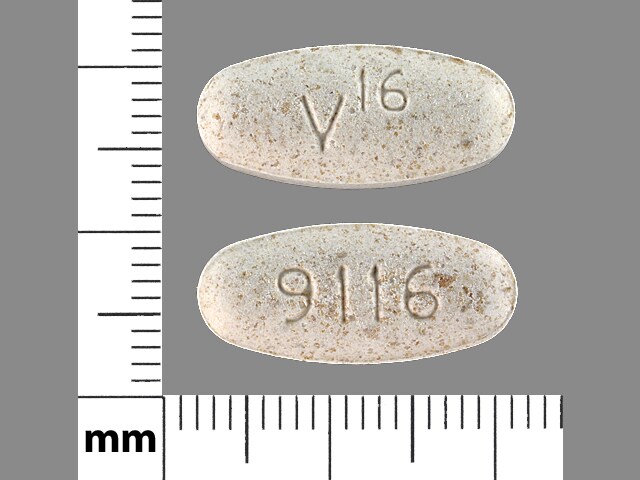What is Viokace used for?
- Viokace is used to help break down food when the pancreas is not working the right way.
Before taking Viokace, tell your doctor:
- If you are allergic to Viokace; any part of this medicine; or any other drugs, foods, or substances. Tell your doctor about the allergy and what signs you had.
- If you are lactose intolerant.
This is not a list of all drugs or health problems that interact with this medicine.
Tell your doctor and pharmacist about all of your drugs (prescription or OTC, natural products, vitamins) and health problems. You must check to make sure that it is safe for you to take Viokace with all of your drugs and health problems. Do not start, stop, or change the dose of any drug without checking with your doctor.
What are some things I need to know or do while I take Viokace?
- Tell all of your health care providers that you take Viokace. This includes your doctors, nurses, pharmacists, and dentists.
- Have blood work checked as you have been told by the doctor. Talk with the doctor.
- Follow the diet plan that your doctor told you about.
- If you have high blood sugar (diabetes), you will need to watch your blood sugar closely.
- Watch for gout attacks.
- This medicine is made from pork (pig) pancreas tissue. There is a very small risk of getting a viral disease from Viokace. No cases have happened. Talk with the doctor.
- Tell your doctor if you are pregnant, plan on getting pregnant, or are breast-feeding. You will need to talk about the benefits and risks to you and the baby.
How is Viokace best taken?
Use Viokace as ordered by your doctor. Read all information given to you. Follow all instructions closely.
- Take with meals and snacks.
- Swallow whole. Do not chew, crush, or hold this product in your mouth. If you do, you may get mouth irritation or it may change the way Viokace works. Talk with your doctor.
- Take each dose with lots of fluids to make sure you swallow all of the contents.
- You will need to take another drug along with Viokace. This includes dexlansoprazole, esomeprazole, lansoprazole, omeprazole, pantoprazole, or rabeprazole. If you have questions, talk with your doctor.
- Keep taking Viokace as you have been told by your doctor or other health care provider, even if you feel well.
What do I do if I miss a dose?
- Skip the missed dose and go back to your normal time.
- Do not take 2 doses at the same time or extra doses.
What are the side effects of Viokace that I need to call my doctor about immediately?
WARNING/CAUTION: Even though it may be rare, some people may have very bad and sometimes deadly side effects when taking a drug. Tell your doctor or get medical help right away if you have any of the following signs or symptoms that may be related to a very bad side effect:
- Signs of an allergic reaction, like rash; hives; itching; red, swollen, blistered, or peeling skin with or without fever; wheezing; tightness in the chest or throat; trouble breathing, swallowing, or talking; unusual hoarseness; or swelling of the mouth, face, lips, tongue, or throat.
- Signs of gallstones like sudden pain in the upper right belly area, right shoulder area, or between the shoulder blades; yellow skin or eyes; or fever with chills.
- Joint pain or swelling.
- Mouth or tongue irritation.
- Swollen gland.
- This medicine may raise the chance of a rare bowel problem called fibrosing colonopathy. This bowel problem can be very bad and may lead to the need for surgery. Call your doctor right away if you have any abnormal or very bad stomach pain, bloating, trouble passing stools, upset stomach, throwing up, or diarrhea.
What are some other side effects of Viokace?
All drugs may cause side effects. However, many people have no side effects or only have minor side effects. Call your doctor or get medical help if any of these side effects or any other side effects bother you or do not go away:
- Headache.
- Stomach pain or heartburn.
- Gas.
- Diarrhea.
- Constipation.
- Upset stomach.
- Cough.
- Sore throat.
- Neck pain.
- Stuffy nose.
- Ear pain.
- Dizziness.
- Nosebleed.
- Anal irritation.
These are not all of the side effects that may occur. If you have questions about side effects, call your doctor. Call your doctor for medical advice about side effects.
You may report side effects to the FDA at 1-800-332-1088. You may also report side effects at https://www.fda.gov/medwatch.
If overdose is suspected:
If you think there has been an overdose, call your poison control center or get medical care right away. Be ready to tell or show what was taken, how much, and when it happened.
Viokace Images
How do I store and/or throw out Viokace?
- Store at room temperature.
- Store in the original container. Do not take out the antimoisture cube or packet.
- Keep lid tightly closed.
- Protect from heat.
- Store in a dry place. Do not store in a bathroom.
- Keep all drugs in a safe place. Keep all drugs out of the reach of children and pets.
- Throw away unused or expired drugs. Do not flush down a toilet or pour down a drain unless you are told to do so. Check with your pharmacist if you have questions about the best way to throw out drugs. There may be drug take-back programs in your area.
Consumer information use and disclaimer
- If your symptoms or health problems do not get better or if they become worse, call your doctor.
- Do not share your drugs with others and do not take anyone else's drugs.
- This medicine comes with an extra patient fact sheet called a Medication Guide. Read it with care. Read it again each time Viokace is refilled. If you have any questions about Viokace, please talk with the doctor, pharmacist, or other health care provider.
- If you think there has been an overdose, call your poison control center or get medical care right away. Be ready to tell or show what was taken, how much, and when it happened.
This information should not be used to decide whether or not to take Viokace or any other medicine. Only the healthcare provider has the knowledge and training to decide which medicines are right for a specific patient. This information does not endorse any medicine as safe, effective, or approved for treating any patient or health condition. This is only a brief summary of general information about this medicine. It does NOT include all information about the possible uses, directions, warnings, precautions, interactions, adverse effects, or risks that may apply to Viokace. This information is not specific medical advice and does not replace information you receive from the healthcare provider. You must talk with the healthcare provider for complete information about the risks and benefits of using this medicine.


